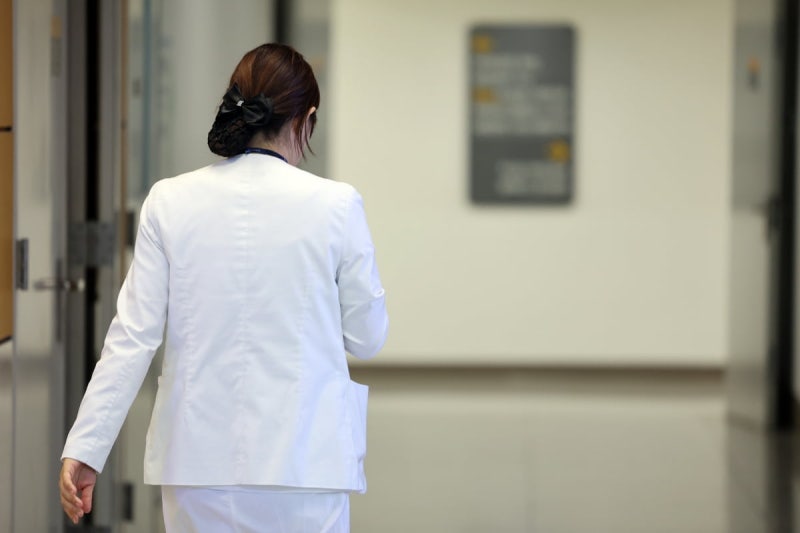
Why Recent Medical Policy Changes Matter for Foreigners in Korea
Hello there! If you’re an expatriate living in Korea or considering a move here, recent developments in the Korean medical sector might significantly affect you. Changes in healthcare policies can alter everything from the availability of medical services to the employment landscape for foreign medical professionals. Let’s dive deeper into these changes and what they mean for you.
In recent news, a significant political shift has occurred with the impeachment of President Yoon Suk-yeol, which has stirred the medical community, especially among residents and interns. This blog post will explain these changes and provide insights into their broader implications for foreigners living and working in Korea.
🌏 What's happening in Korea? (Quick overview)
Recently, the Korean President faced impeachment, leading to widespread reactions in various sectors, particularly in healthcare. The Korean Association of Resident Doctors has welcomed this political upheaval, expressing hopes that it might resolve ongoing conflicts between the medical community and the government. With the government’s proposed policies regarding medical education under scrutiny, it’s a pivotal moment for healthcare in Korea.
💡 Why this matters for foreigners? (Impact analysis)
For foreigners working in the medical field in Korea, these changes may signal a potential for a more favorable working environment. A shift in government policy often leads to adjustments in healthcare regulations, which can directly affect foreign doctors, especially as debates around healthcare capacity and residency practices unfold.
📌 How to take advantage of this? (Step-by-step guide, if applicable)
If you are considering pursuing a career in the medical field in Korea, here are some steps to take advantage of this situation:
- Stay informed: Follow local news outlets and official announcements about healthcare policies.
- Network: Connect with other foreign medical professionals and join local expatriate communities.
- Seek opportunities: Look for internships or positions that may open up due to changes in healthcare policies.
🇰🇷 Understanding Korea's system (Cultural & bureaucratic insights)
Understanding the Korean medical system requires navigating a unique bureaucratic landscape. For instance, the medical sector is heavily regulated, and changes in government leadership often lead to shifts in policy direction. Engaging with these systems can be complex but vital for success in a foreign country.
🌟 Tips for foreigners living in Korea
Here are some essential tips for navigating life as a foreigner in Korea, especially in light of recent changes in healthcare policies:
- Learn basic Korean medical terminology to enhance communication in healthcare settings.
- Participate in forums and workshops related to expatriate experiences in Korea.
- Be proactive in seeking clarification on any changes that may affect your health and employment status.
🔮 What's next? (Future trends & additional insights)
Looking ahead, the political landscape in Korea may continue to evolve, shaping the healthcare landscape. As policies may shift towards accommodating more foreign residents and medical professionals, there is significant potential for greater integration within the medical community. Keeping an eye on these trends will be crucial for making informed decisions about your career and life in Korea.
---🇰🇷 Learn Korean from this Article!
Improve your Korean language skills with these key phrases from the article:
🔤 Korean Phrase 1: "의사 면허"
🔤 Pronunciation: "isa myeonho"
🔤 English Translation: "Medical license"
🔤 Usage Tip: Use this term when discussing qualifications in the medical field.
🔤 Korean Phrase 2: "안전한 의료"
🔤 Pronunciation: "anjeonhan uiryo"
🔤 English Translation: "Safe healthcare"
🔤 Usage Tip: This is useful when discussing quality or safety in medical settings.
🔤 Korean Phrase 3: "정상적인 치료"
🔤 Pronunciation: "jeongsangjeogin chiryo"
🔤 English Translation: "Normal treatment"
🔤 Usage Tip: Use this phrase when discussing standard medical practices and treatments.
🙋 Essential FAQs for Foreigners
Can foreigners participate or apply?
Yes, foreigners can apply for medical positions in Korea; however, certain qualifications may be required depending on the specialty and hospital policies.
Do I need to know Korean for this?
While not always required, knowledge of Korean can significantly enhance your ability to communicate with patients and colleagues in the medical field.
Where can I find official details?
For official updates and details on medical policies, refer to the Korean Ministry of Health & Welfare website.
In conclusion, staying informed about these shifting dynamics can help you navigate your life and career in Korea more effectively. Embrace the changes and consider how they can benefit you!
---📱 Get the BeraKorean App & Stay Updated!
Want to improve your Korean skills and stay informed about life in Korea? Download the BeraKorean app for exclusive content:
- 📱 Android: Download on Google Play
- 🍎 iOS: Download on App Store
📺 Follow us on BeraKorean YouTube for Korean lifestyle & language content!
🌏 Visit berakorean.com for more updates, news, and insights on living in Korea.
---🔗 Read the Original Korean Article
Want to dive deeper? Check out the original article here:
---📢 Tags
#KoreaNews #LifeInKorea #ForeignersInKorea #KoreaOpportunities #KoreaLiving #LearnKorean #KoreanLanguage